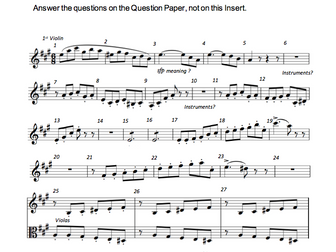Crotchet and Quaver IHWH Rhythm Cards
<p>Great to use in the music classroom to get the pupils used to aurally recognising rhythm patterns and playing their own notated patterns. Can be used in whole class or small group set ups. This is the level 1 set which only includes crotchets and quavers in the patterns.</p>
